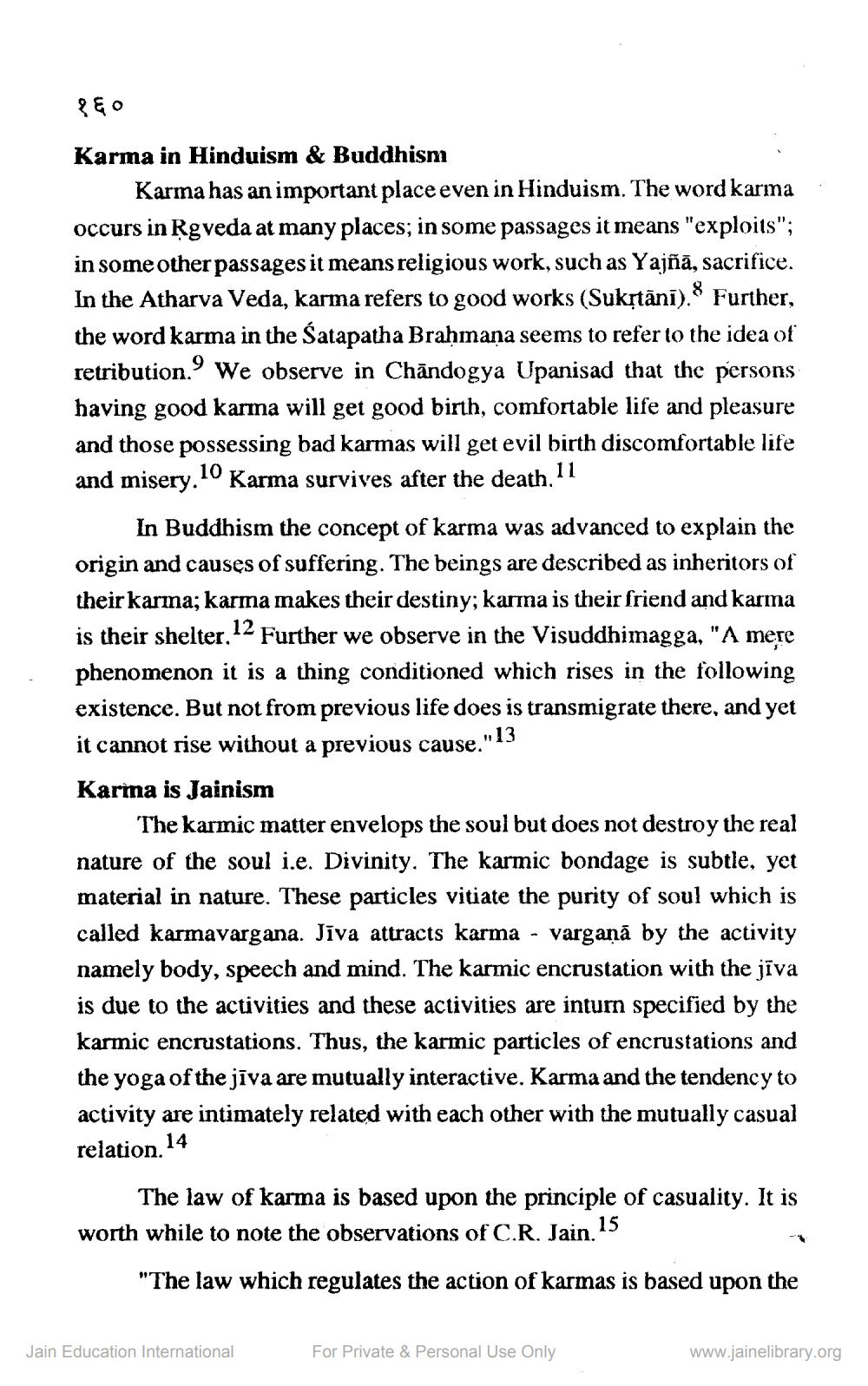________________
१६०
Karma in Hinduism & Buddhism
Karma has an important place even in Hinduism. The word karma occurs in Rgveda at many places; in some passages it means "exploits"; in some other passages it means religious work, such as Yajñā, sacrifice. In the Atharva Veda, karma refers to good works (Sukstānī). Further, the word karma in the Satapatha Brahmana seems to refer to the idea of retribution. We observe in Chandogya Upanisad that the persons having good karma will get good birth, comfortable life and pleasure and those possessing bad karmas will get evil birth discomfortable life and misery. 10 Karma survives after the death. 11
In Buddhism the concept of karma was advanced to explain the origin and causes of suffering. The beings are described as inheritors of their karma; karma makes their destiny; karma is their friend and karma is their shelter. 12 Further we observe in the Visuddhimagga, "A mere phenomenon it is a thing conditioned which rises in the following existence. But not from previous life does is transmigrate there, and yet it cannot rise without a previous cause."13 Karina is Jainism
The karmic matter envelops the soul but does not destroy the real nature of the soul i.e. Divinity. The karmic bondage is subtle, yet material in nature. These particles vitiate the purity of soul which is called karmavargana. Jīva attracts karma - varganā by the activity namely body, speech and mind. The karmic encrustation with the jīva is due to the activities and these activities are inturn specified by the karmic encrustations. Thus, the karmic particles of encrustations and the yoga of the jīva are mutually interactive. Karma and the tendency to activity are intimately related with each other with the mutually casual relation.14
The law of karma is based upon the principle of casuality. It is worth while to note the observations of C.R. Jain. 15
"The law which regulates the action of karmas is based upon the
Jain Education International
For Private & Personal Use Only
www.jainelibrary.org




